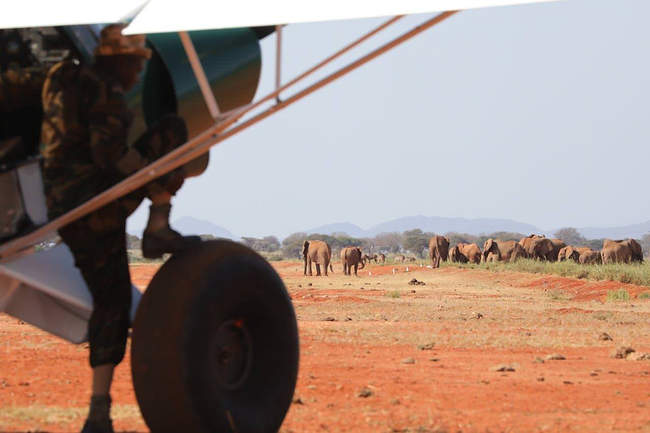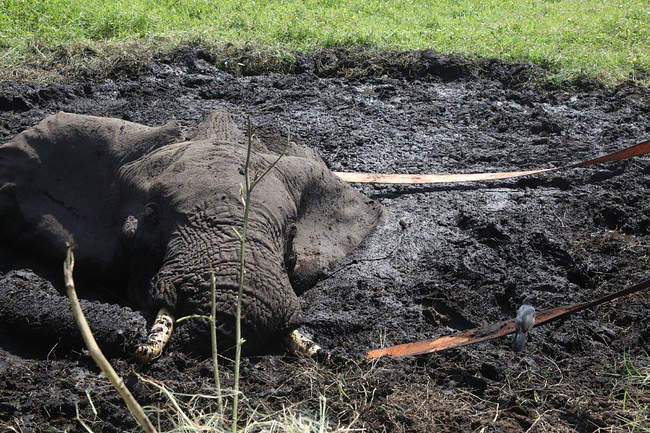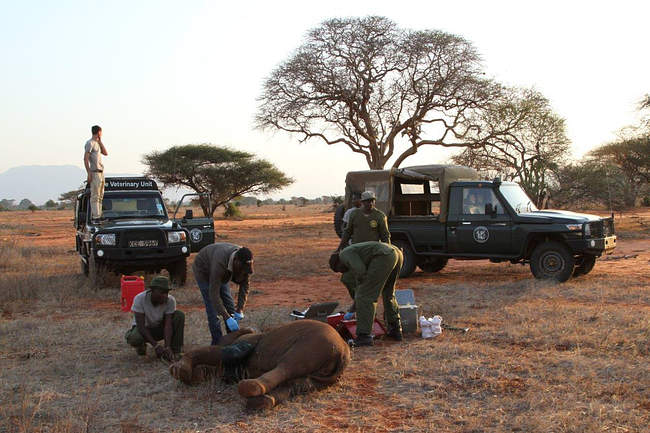July saw an increase in illegal activities within the National Parks and Protected Areas, which follows several months of little to no activity being encountered by the Aerial Unit. Although the lull in illegal activity has been promising, our work is far from over, as demonstrated this month.
Despite relatively low poaching activity recently in the normal areas of operation covered by our De-Snaring Teams on their anti-poaching patrols, there was a sudden and dramatic surge in poaching, especially snaring, elsewhere in the conservation area.
The first of these cases was a snared lion that was sighted first by a tour company and again, a week later, by scouts from Galana Conservancy. The second case was of an adult female elephant that had also been sighted by Galana Conservancy scouts with a terrible snare injury around her neck, shoulder and one ear. During the search, however, a young elephant calf was sighted, also with a snare injury, standing alone in the riverine forest only a few kilometres from where the adult was last seen.
This was not the only drama in July, which included the continued search for an elephant calf that was sighted 4 days previously by tourists in Tsavo East. A call was also received about a bull elephant that had been spotted near a spring in Amboseli, buried in thick mud and unable to escape. Our Aerial Unit also assisted with two other veterinary cases during the month.
In addition to these jobs, the helicopter assisted ground teams fighting fires in the northern Chyulu Hills. The helicopter dropped water from a Bambi bucket to extinguish flames as well as dropping off rangers at strategic points to fight the fires from the ground. The fires were widespread, but fortunately affected mostly grassland as opposed to dense forest. Regarding poaching activity, the helicopter conducted several anti-poaching aerial patrols with KWS, discovering 2 recent shooting platforms in baobab trees, as well as several cooking fires in an area near the Tiva River.
Only one case of human-wildlife conflict was attended to by the helicopter in July, where four elephants were successfully pushed out of the community and back into the Kibwezi Forest.

During July, our SWT/KWS Canine Unit unit was conducting training exercises with the team from Invictus K9, and on multiple occasions, either fixed-wing aircraft or the helicopter participated in simulated poacher tracking exercises. These exercises were a great opportunity for the dogs and their handles to demonstrate their newly acquired skills, as well as building team cohesion and motivation. Livestock incursions in July were minimal in Tsavo East; however, the Aerial Unit spent several days locating livestock herds and illegal enclosures in Tsavo West, in assistance to a KWS operation to push them out. This operation was largely successful; however, there are still a few areas that need more attention.
Read our full monthly report below for more details of our Aerial operations in July 2019.



